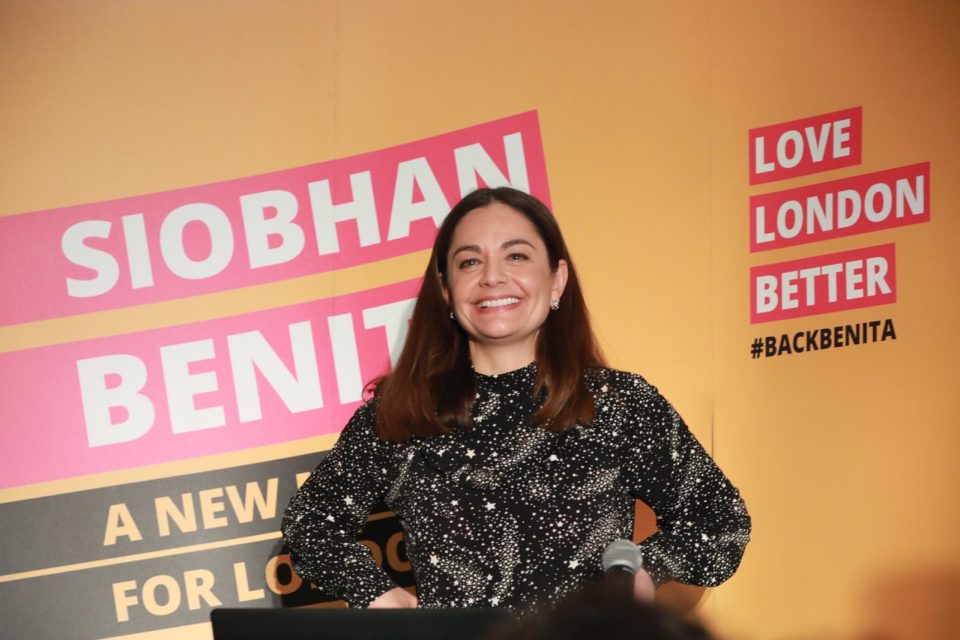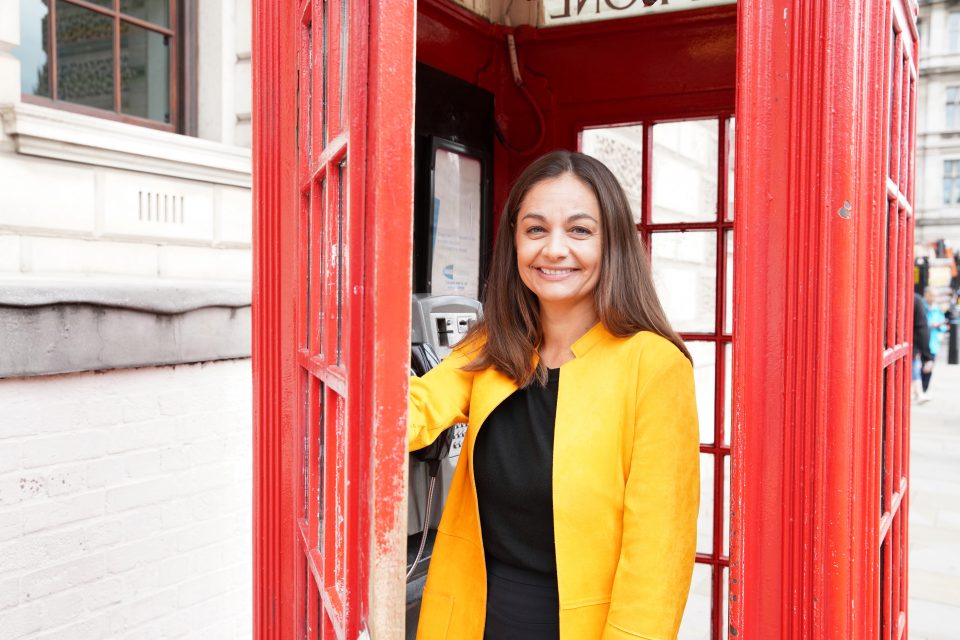Mayoral candidate Siobhan Benita wants to ‘Love London Better’

For a brief moment in 2019, the Liberal Democrats looked a serious chance of upending Britain’s two-party political hegemony.
After years in the political wilderness, the party rode a wave of Brexit uncertainty and parliamentary division to top Westminster YouGov polling in late May, eliciting cries of jubilation from long suffering Lib Dem supporters. It’s clearly defined anti-Brexit stance, and the ostensible popularity of leader-in-waiting Jo Swinson, had the party looking its strongest in years, particularly in the Remainer stronghold of London.
Fast forward nine months and things look decidedly less peachy, if not disastrous. In the General Election, the Lib Dems picked up just 11 per cent of the vote, Swinson’s constituency turfed her out of office and the party finished the night with nine less seats than when it started. It also only won three constituencies in London.
It has left the party needing to rebuild once again and find an identity beyond Brexit, which essentially turned the Lib Dems into a one-issue party. The journey largely begins with London mayoral candidate Siobhan Benita, who ran as an independent in the 2012 race against Boris Johnson. The 7 May poll gives her an opportunity to reboot the party’s brand in the capital and lay out a clear vision for what a Liberal Democrat platform looks like in 2020.
A part of her pitch has been that she would be the “most business-friendly mayor” London has seen. Included among her policies in this arena is to create an international trade team at City Hall, open a London-wide tech incubator and to lobby central government for a “London visa” that addresses specific skills needs in the capital.
She’s also keen to improve skills and training by installing a deputy mayor for adult education.

“I don’t think Sadiq [Khan] has done enough in terms of strengthening and engaging with the business community – we’re hearing that everywhere we go,” she says.
“Skills and making sure you have access to talent are the concerns I’m hearing from the City and from businesses.
“One way I’d address is this is by creating centres of excellence for the tech industry.”
Beyond business, Benita has pitched her campaign as revolving around three central pillars – making London “safer, greener and kinder”.
Making London safer will likely by the central issue of the campaign as violent crime rates continue to soar under Khan. Benita’s plan to tackle gang violence is grounded in policies to decriminalise cannabis, create more youth programmes and designate Metropolitan Police liaison officers for every school.
“It’s an area where Khan is hugely vulnerable, because his default position has been to blame central government for not having enough police on the streets – that’s only one part of the problem,” she says.
“Prevention and intervention are just as important as enforcement when it comes to knife crime.”
However, it may be difficult for Benita to stamp her authority on the issue. Tory candidate Shaun Bailey, a former social worker, and independent candidate Rory Stewart, a prisons minister in the Theresa May government, are seen by some pundits as the most likely to make it a signature issue.
Similar could be said on the environmental agenda, where Green party co-leader Sian Berry could outflank Benita from the left. The third pillar, making London kinder, is somewhat more of a unique selling point. Her campaign slogan – “Love London Better” – plays into this facet of her campaign.
“If you start looking at any issue through this lens of kindness then the need for more action becomes very clear,” she explains.
“It’s not good enough we have people sleeping on our streets, it’s not good enough we have such high inequality levels in London, it’s not good enough the air is not clean enough for our children to breathe.
“It’s also about mental health and loneliness – how do you make big cities like London centres of wellbeing and kindness?”
One does get the sense that these issues are genuinely close to the heart of the mayoral candidate. She’s a born and bred south Londoner who loves the unique diversity of the capital, calling London “the most inclusive and welcoming city on the planet”.

In many ways she is living proof of that assertion – her mother was an Indian immigrant and her husband is a French national.
“For me, this city is so special,” she says.
“When people ask me, ‘why do you want the job?’, I always think ‘why would you not want to be the mayor of London?’”
However, Benita says it’s more than her natural charisma and love for the city which makes her the right person for the job.
A policy wonk, she worked in the civil service in the transport, environment and local government departments for a decade, before moving into the Cabinet Office under the premierships of Tony Blair and Gordon Brown.
She then had stints as head of corporate management at the Department of Health and as head of policy at the University of Warwick’s economics department. The mayoral hopeful said this experience made her the most able candidate to implement policy and improve governance at City Hall.
“I do think I understand how you get better transparency and how you manage risk properly – that’s something I think we have a problem with in City Hall,” she says.
“All you need to do is look at Crossrail, which is three years and £3bn over budget.
“Something has gone seriously wrong with the risk management on that project.”
Whether Benita can forge her identity in the minds of voters and create a way forward for the Lib Dems in London remains to be seen.
If she can manage to conjure up an impressive performance in May, it could well represent the first step of putting the Lib Dems back on the map.